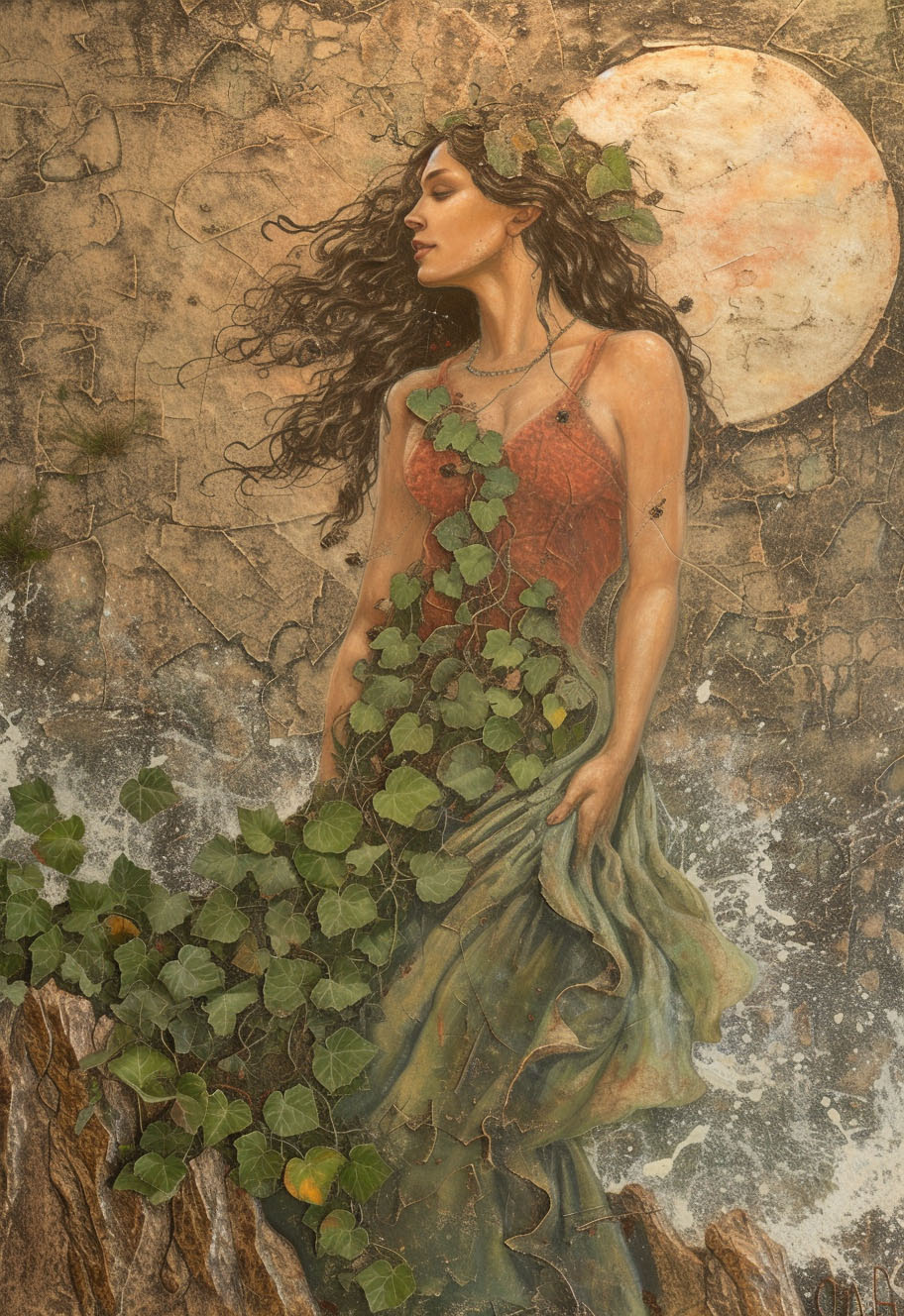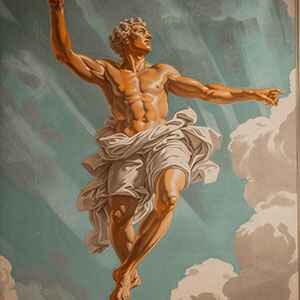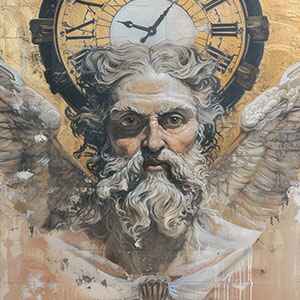Gaea
Gaea, in Greek mythology, is a primordial deity and the personification of the Earth. She is considered one of the earliest beings to emerge from Chaos, the initial state of existence. Gaea holds significant importance in the genealogy of the gods and plays a vital role in various myths and stories.
Parents: Chaos
Siblings: Tartarus, Erebus, Nyx
Consort: Uranus
Children: Cronus, Rhea, Oceanus, Hyperion, and other Titans

Primordial Origin: Gaea is often described as one of the first beings to arise from Chaos, along with Tartarus (the abyss), Erebus (darkness), and Nyx (night). She represents the Earth as a fundamental and ancient force.
Mother of the Titans: Gaea gave birth to the Titans, a race of powerful and primordial deities who played a crucial role in the early cosmos. Notable Titans include Cronus, Rhea, Oceanus, and Hyperion.
Maternal Role: Gaea is often portrayed as a nurturing and maternal figure. She provided a fertile and supportive environment for the development of life and served as a protective force for her offspring.
Consort and Offspring: Gaea was both the mother and, in some myths, the consort of Uranus (the Sky). Together, they bore the first generation of Titans. The cyclical and generative nature of their relationship reflects the interconnectedness of Earth and the sky.
Uranus and Cronus: Gaea played a role in the overthrow of Uranus by his son Cronus. She supported Cronus in his efforts to castrate Uranus, which led to the rise of the Titans to power.
Conflict with Olympian Gods: Gaea and the Titans later faced opposition from the Olympian gods, led by Zeus. The resulting conflict, known as the Titanomachy, marked a significant transition in the ruling order of the cosmos.
Gaea's Wrath: In some myths, Gaea is depicted as a force capable of expressing her displeasure and wrath. She could unleash powerful forces of nature, such as earthquakes, as a means of punishing those who defied her.
Associations with Nature: Gaea is closely associated with the Earth and the natural world. Her embodiment of the Earth underscores the ancient Greeks' connection between the land, fertility, and the divine.
Cult Worship: Gaea was not only a prominent figure in mythology but also had a presence in cult worship. Some ancient Greek communities honoured her with rituals and ceremonies, acknowledging the Earth as a sacred and life-giving force.
Modern Influence: Gaea's name has persisted in modern discussions, particularly in ecological and environmental contexts. The term "Gaea hypothesis," proposed by scientist James Lovelock, suggests that the Earth functions as a self-regulating organism.
In summary, Gaea embodies the Earth as a primordial and maternal force. Her role in the genealogy of the gods, her connections with nature, and her involvement in key myths highlight the ancient Greeks' recognition of the Earth as a fundamental and powerful entity in the cosmic order.
Immediate Family
Quick Facts
- Gaea is considered one of the first beings to emerge from Chaos.
- She gave birth to the Titans, a powerful and primordial race of deities.
- Gaea played a role in the overthrow of Uranus by his son Cronus.
- In some myths, Gaea is depicted as a force capable of expressing her displeasure and wrath.
- Gaea is closely associated with the Earth and the natural world.
- She had a significant role in the conflict known as the Titanomachy.
- Gaea's name persists in modern discussions, particularly in ecological and environmental contexts.
Further Reading
Art &
Architecture
Ancient Greek art and architecture, with its harmonious proportions and timeless elegance, continue to inspire awe and admiration millennia later.
Discover
Greek Mythology & Mythical Characters
Greek mythology, a rich tapestry of gods, heroes, and mythical creatures, captivates the imagination with its tales of love, betrayal, and epic adventures that delve into the depths of the human psyche.
Discover
Ancient Greek History
Ancient Greek history, marked by remarkable achievements in democracy, philosophy, and warfare, shaped the foundation of Western civilization, leaving an indelible legacy of innovation and cultural influence that continues to resonate to this day.
Discover
Ancient Greek Olympics
The ancient Greek Olympics, held in Olympia every four years, celebrated athleticism, unity, and cultural pride, serving as a testament to the enduring spirit of competition and excellence that transcends time and borders.
Discover
Ancient Greek Wars
Ancient Greek wars, such as the Persian Wars and the Peloponnesian War, were pivotal conflicts that shaped the course of history, highlighting the struggle for power, independence, and the clash of civilizations in the ancient Mediterranean world.
Discover
Ancient Greek Culture and Society
Ancient Greek culture and society, characterized by its emphasis on art, philosophy, and civic engagement, fostered a vibrant intellectual and social landscape where innovation flourished, democracy thrived, and the pursuit of knowledge and excellence was celebrated as fundamental values of civilized life.
Discover

